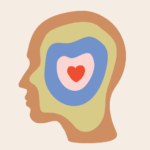What is MDS?
Myelodysplastic syndrome (MDS) occurs when there is a dysfunction in the bone marrow, which leads to the production of defective blood cells. This also leads to a decrease in the production of blood cells, which leads to low blood counts. There are different types of the disease and it can affect all types of blood cells. Ultimately, it is considered a bone marrow failure disorder.
Because it affects the bone marrow’s ability to produce enough healthy, functioning blood cells, the following symptoms may occur:
- Frequent infections
- Fatigue
- Shortness of breath
- Easy bleeding/bruising
If your doctor suspects you have MDS due to low blood cells, they will likely order a bone marrow biopsy. This can confirm MDS and provide other details about the cancer.
Dr. Jun Choi explains how MDS is diagnosed.
Once a patient is diagnosed, determining treatment will depend on several factors, as your doctor will assess blood counts, bone marrow, the number of immature cells in marrow, and how cells mature.
"You can think of MDS as a spectrum of diseases," Dr. Lewis Silverman, director of the resource center for MDS at Mt. Sinai's Tisch Cancer Institute, tells SurvivorNet. "On the one hand, there are patients who, when they present, are categorized as having very low-risk disease, and then it ranges up through middle categories to very high-risk disease. MDS patients can be categorized anywhere along that spectrum of disease."
What are the Treatment Options?
For low risk MDS, no treatment may be necessary, but many patients will need medications or blood transfusions to help improve their blood counts.
For high risk MDS, more aggressive therapy is needed most commonly this will be a "hypomethylating agent" (HMA). These medications work by disrupting unregulated cancer cell growth. A stem cell transplant can also be considered, which is potentially curative.
The treatment will depend on the type of MDS a person has, their general prognosis, and their overall health. MDS may be treated with the following approaches:
- Disease modifying therapies, such as chemotherapy or targeted therapy
- Supportive care, which could include blood transfusions or blood-stimulating medicines
- Blood and marrow transplants
- A combination of the above approaches
The type of treatment a person is given, and how often they need to undergo that treatment, depends largely on their individual disease factors. Genetic sequencing may also be required to look for specific genetic mutations that may alter the treatment course.
“MDS is actually a lot of different diseases all lumped into one,” Dr. Eytan Stein, Chief of the Leukemia Service at Memorial Sloan Kettering Cancer Center, tells SurvivorNet. Dr. Stein explains that one of the types of MDS is characterized by a 5q deletion, which means part of chromosome 5 is missing. These patients tend to have isolated anemia with a “fairly elevated platelet count.”
In this situation, an oral medication called Revlimid may be used to treat the anemia quickly and efficiently. It’s generally well-tolerated in MDS patients, Dr. Stein explains.
Dr. Eytan Stein explains the different oral medications that can be used for different types of MDS.
Currently, a stem cell transplant is the only curative treatment option for MDS, but not every patient is a candidate for these intense treatments.
"The only curative option [for] MDS these days is a bone marrow transplant," Dr. Choi explains. "Now, bone marrow transplant is one of the more intense therapies for MDS, so you really want to be able to tolerate this therapy. That is why this therapy is reserved mostly for younger patients and [those] who do not have other medical conditions."
Because the majority of patients diagnosed with MDS are older, stem cell transplants are often not an option. But while the disease may not be cured, there are many options for managing it.
Dr. Jun Choi explains how patients with MDS have a chance for a cure with a bone marrow transplant (also called a stem cell transplant).
Treating High-Risk MDS
If after gathering information on a patient’s blood counts, bone marrow, and genetic mutations, doctors determine that a patient is high-risk, there are a few treatment approaches they may take.
- Treatment may begin with a class of drugs known as hypomethylating agents (HMAs). HMAs include intravenous or oral forms of azacitidine (Vidayza, Onureg) or decitabine (Dacogen, Inqovi).
- Some patients may require more frequent transfusions, from every few weeks to even several times a week.
- Some patients may be eligible for a bone marrow transplant.




